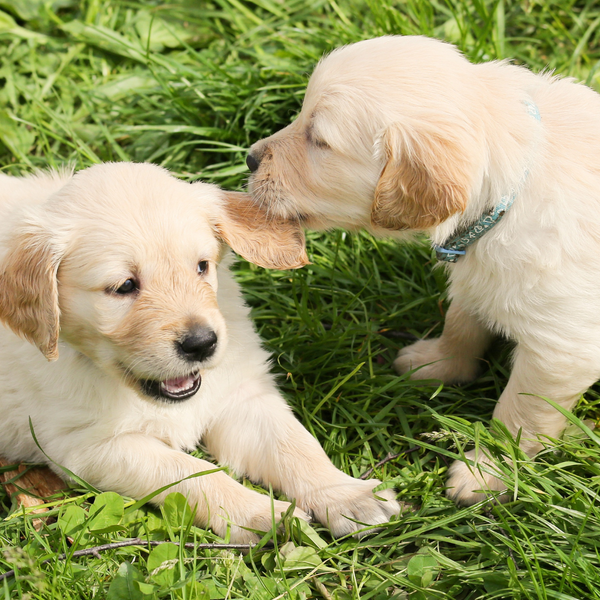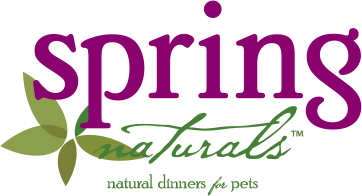
Socializing Your Puppy! Behaviors to Reinforce or Correct
(Dr. Iulia Mihai, DVM) Regardless of the breed, puppies must be socialized from a young age. This is so they do not become anxious, aggressive, and behaviorally unbalanced as adults. The truth is that nobody wants to come home from work to a dog that only creates constant stress. As a result, the socialization of the puppy is essential for their harmonious development and becoming a balanced and happy adult.
This socialization involves exposing puppies to various environments, people, pets, and situations so they become used to them and develop positive associations/behaviors. In this article, you will learn how to socialize your puppy and what the behaviors that need to be strengthened or corrected are so that they become happy and balanced adults.
Socialization Phase In Dogs
Socialization must start as early as possible. The sooner the better for you and your dog. It is essential and has a major impact on your puppy's mental and physical well-being. Socialization is continuous and happens throughout your dog's life, but nevertheless, the first months of their life will guide them throughout their life.
A puppy moves to a new house around the age of 8 weeks. At this moment, they are in the middle of the socialization phase. The socialization period is between 3 and 14 weeks.
The first months of your puppy's life will shape their personality. They will learn how to react to various environments to which they will be exposed as adult dogs. Exposure to people, pets, situations, and places must be done gently and with patience. Remember that this is a process and everything must happen gradually! In addition, every puppy is different and the rate of development will vary. Therefore, do not force your pet into situations that do not make them feel comfortable.
Do's And Don'ts
In order for your puppy's socialization to be successful, it is good to act upon behaviors that need to be reinforced and those behaviors need to be corrected. Only in this way will your puppy know what is expected of them as they mature.
Behaviors To Reinforce
- Positive interactions with people and animals
This category includes aspects such as praise, rewards (tasty treats), and play with other pets or people.
- Praise and reward
During socialization, these two aspects play a crucial role in the success of this process. Socialization can be a stressful experience for your pet, especially in new or unfamiliar situations/places. Through praise and reward, your pup will associate these new experiences with something positive. When your pet is praised and rewarded for desired behaviors, they will understand that these behaviors are acceptable and will be more likely to repeat them. As a result, a puppy that is praised and rewarded will feel more confident in new environments and in the presence of other people or animals.
- Do’s
For verbal praise, use a positive and enthusiastic tone. Here are some examples of words you can use to reinforce your dog's positive behaviors:
- "Bravo!"
- "Well done!"
- “Good job!”
- “Good boy or girl!”
- "You are a good dog!"
For food rewards (treats), use delicious and healthy snacks. Also, in addition to verbal praise and food rewards, you can also use physical rewards, such as petting, light pats on the back and head, or play.
It is important to recognize and reward every positive behavior, especially in the first phases of socialization when your puppy is learning.
Examples of socializing situations:
- Meetings with other dogs
- Exposure to new noises
- Interactions with new people
- Don’ts
It is important to observe your dog's body language and pay attention to signs of stress or discomfort. If your dog is stressed or anxious, remove them from the situation to ensure you do not increase their anxiety and adjust your praise and reward methods.
Don't force your puppy into socializing situations that are too intense or fast for them. Gradually increase the difficulty and allow your pup to explore at their own pace, not at the pace you imposed.
- Social play with other pets and/or people
Play, whether with other pets, people, or by themselves, is a vital aspect of any pet's life. It helps with physical, emotional, and behavioral development. Through play, your dog will learn to interact with other pets and people and will help them develop essential social skills. In addition, playing also helps with energy consumption.
Encourage your pup to play gently with other pets and people, but not without supervision. When they are small, puppies do not know how much pressure to apply when biting while playing. It is important to make sure that they do not play aggressively (both with people and with other pets).
Through play, your puppy develops their social skills by learning to interact properly with people and other pets. It consumes their energy in a positive way, which reduces the risk of unwanted destructive behaviors (e.g., chewing the sofa or your favorite pair of shoes). Also, regular physical activity helps to maintain a healthy weight and develop muscles. Lastly, playing with your dog strengthens the bond you have with them, leading to increased trust and affection.
- Calm And Relaxed Behaviors
If your dog is calm and relaxed in new situations, reward these states. Therefore, you will help them understand that they don't have to be anxious or agitated in new situations.
When your dog needs a break, offer them a quiet place where they can go rest and relax for a bit.
- Obedience
It is very important that your pup learns the basic commands to be obedient. Some basic commands can be:
- "Wait"
- "Come"
- "Sit"
- "Leave it"
- "Down"
- "Stay"
- "Off"
In addition, you must encourage the desired behaviors by rewarding them (e.g., walking on a leash, coming when called, waiting calmly, etc.).
Behaviors To Correct
Basically, any behavior that seems destructive or that is not to your liking can be corrected. The most common behaviors that need to be corrected are:
- Aggressiveness or excessive fear
- Jumping on people
- Chewing furniture, shoes, clothes, etc.
These behaviors require appropriate corrective approaches to ensure that your puppy develops properly.
First of all, you must identify the cause of the aggression or fear (e.g., a dog can become aggressive or scared if they feel threatened). Dogs can defend their toys, territory, master, or food. If your adult dog was not socialized from a young age, they can become aggressive towards people or other pets.
To make sure your pup does not become aggressive in adulthood, gradually introduce them to various environments, people, or pets. Encourage positive interactions through praise and rewards. Be sure to teach them the basic commands to have better control over them.
A very important note: Do not punish your dog. Punishments can make these unwanted behaviors worse through unwanted associations formed in the process. Only reward calm and positive behavior to create the positive and wanted associations you desire in your dog. Lastly, consult a specialist if your pet’s aggression or fear persists.
Jumping on people
Do not encourage your dog to jump on people and reward them only when they stay calm. Ignore your dog when they jump on you and tell this to other people who come into contact with your dog. Oftentimes, reacting neutrally and turning away from the dog will create an association that people don’t want to be jumped on.
Teach them the command "Sit" when greeting people. Reward them when they do this well.
Chewing furniture, shoes, clothes, etc.If your dog has a habit of chewing anything that comes their way, you can distract them with chewing toys. Praise them when they use them. This will help them redirect their attention from inappropriate objects.
In addition, you can supervise your dog during playtime and offer alternatives for chewing. Dogs who expend their energy during constructive playtime will be less likely to expend their energy doing non-constructive things. Redirection is a useful technique in this instance.
Iuliana graduated from the University of Agronomical Sciences and Veterinary Medicine in 2012, Romania. She has a Master’s degree in Small Animal and Equines Pathology and a strong affinity for Veterinary Parasitology and Laboratory. In 2013 she started her Ph.D. in epithelial cancer in dogs and cats. She volunteered at the faculty’s clinic in her 3rd year of study, and continued her career in small animal pathology and laboratory. She has one cat and eleven rats. Her interests outside of work include traveling, writing, and crafting.
Post a Comment!